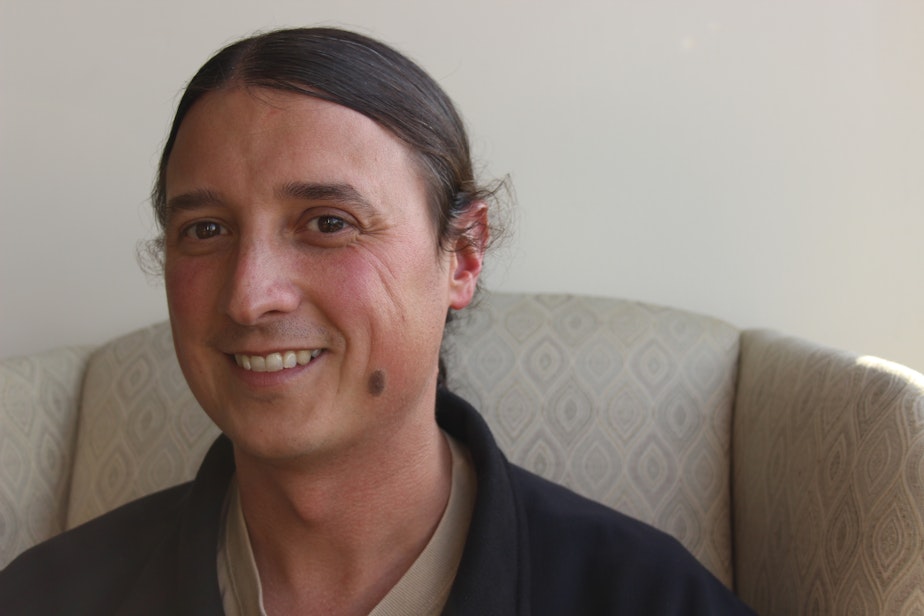They Told Native Children, ‘You’re Here Because Your Parents Don’t Love You’

On Oct. 12, the Seattle City Council voted to acknowledge the trauma caused by the government’s American Indian boarding schools. Matt Remle, an educator and member of the Lakota tribe, talked about the lasting impacts with KUOW’s Jeannie Yandel.
You are five years old. You are literally taken from your home. There was no choice. You have somebody coming to your door to take you away to these boarding schools.
You as a parent have no choice; your children must go.
Some of my family don’t want to talk about their experiences, but one of the ones I did hear repeatedly was that they had this message verbally beaten into them: “You’re here because your parents don’t love you. That’s why you’re here. And that’s why they’re not coming to get you.”
Mom and Dad, Grandma and Grandpa can’t come get you; they’re forbidden from coming to get you, forbidden to come see you.
So now you get out when you’re 18. You haven’t had a home, your mom and dad, a loving, nurturing environment to raise you. And you have this idea in your head, “You’re not loved; you’re not wanted; everything about you is devilish.”
You can tell them, “Mom and Dad did love you, but that was federal policy. They had no choice, you had to go.” You can tell them that until you are blue in the face, but that other message is too firmly implanted.
That’s one of the saddest, most heartbreaking things I’ve witnessed from survivors.
I hear how difficult it is for some survivors to even say, “I love you.” They can’t say “I love you” to their own children – it’s too difficult because of what mentally and physically beaten into them.
The lasting impacts of the American Indian boarding school policy plague our communities today, from poverty to language loss.
In the boarding schools, languages were forbidden to be spoken. Children were abused if they spoke their traditional languages. It’s why, me sitting here, I’m speaking to you in English as my first language.
Our spirituality was criminalized. So you had assimilation of religion. That’s why we say it’s cultural genocide.
If you study the cycles of violence, physical and sexual abuse tends to recycle itself. And these are problems that we see in the Native community to this day. And their roots can be traced directly back to the sexual and physical abuse that took place within these boarding schools.
Most people, and especially non-Native society, don’t know about the boarding schools. And sometimes even within Native families, because who wants to talk about it? Why would a victim of rape want to sit down and say, “Oh, hey, guess what happened to me?” – especially repeatedly.
Imagine from our perspective: Non-Native society makes no mention of it. There’s no discussion of it, no efforts of reconciliation, no apologies – it’s just swept under the rug.
The resolution by the Seattle City Council gives acknowledgement, which is one of the first steps toward healing.
Just having a city government say “we did wrong here” can be a first step. If the city is truly serious about engaging in issues impacting us today, with poverty and schools issues, then it must start with addressing the root cause.
This interview has been lightly edited for length and clarity.
Produced for the Web by Kara McDermott.

